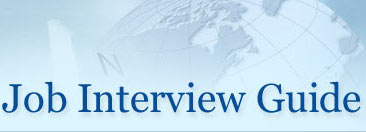|
|
Don't write too much: Your CV should not be too lengthy. One common mistake that people make while writing their resume is that they think that by adding pages to their resume they can impress the other person. In this endeavor they write pages and pages of irrelevant details or write the same thing over and over again, in different styles, words and jargon. In such a scenario, the employer has to sift the relevant details from the overload of unnecessary information and this creates a negative impression. Your CV should be brief and concise. Ideally, a CV should not go beyond two pages at most. However, if your achievements are really great, one extra page is negotiable.
Don't write too little: On the other hand some people write too little. Consider this statement in a CV:
" Worked as Assistant Engineer for L&T ECC between July 2000 and September 2003."
Does it indicate anything besides the fact that the person worked for L&T ECC? Don't forego your job responsibilities and details about the company or the department you worked for.
The above should read:
"Worked as Assistant Engineer, between July 2000 and September 2003, for L&T ECC, premier construction company in India, with a turnover of Rs.8000 crore. Job responsibilities included quantity surveying, site supervision, quality control and coordinating between various subcontractors."
Don't use long-winded sentences and old-fashioned language: "Sir, I would hereby draw your esteemed attention to the way my talents are in synchronization with your company's long-term goals."
Most employers would be put-off by this type of language. Be specific, be direct. Which goals will you help the company to achieve better sales revenue, a new strategy to cut costs, better management of inter-department communication. Explain in a few crisp sentences what you do now, and what you aim to do in your new job. Do not sprinkle your CV with personal pronouns. Try to avoid using "I", "me", "my" in the CV. It is your CV and therefore it is bound to be about you.
The statement: "I overshot my sales target by 20 percent and I was given a special increment by the marketing director." is better written as: "Overshot my sales target by 20 percent, and was given a special increment by the marketing director."
Maintain proper information flow: Most people start with their birth date and list everything in chronological order. So, if they started with company "A" at the age of 18 and are now, say, 38 years old and work for company "X", chances are they will start their career history with "A" and list "X" last.
This should be strict avoid because, to the prospective employer, your last job profile matters more than your first one. Few employers like to spend an hour on a resume searching for the last position held by the applicant.
This applies to educational qualifications too. A CV favours reverse chronological order. Stick to it.
Hobbies should come towards the end, but shouldn't be done away with. They provide an insight about your personality. These days, the emphasis is not only on your skills but also on your personality.
Check your resume for proper grammar and correct spelling: .Poor grammar and misspelled words cause a potential employer to question your attention to detail and the quality of your work. With a large number of applicants to chose from why would an employer be interested in an individual with a poor resume Keep in mind that your resume is your personal promotional brochure. Checking your resume for grammar and spelling mistakes thoroughly.
Never lie in your CV: Never lie about your qualifications and work experience that you think will bolster your CV. The repercussions of faking facts can be professionally devastating. Whether you are exaggerating job accomplishments or creating complete fabrications, lying is simply a bad idea. Remember the old adage "Honesty is the Best Policy"


